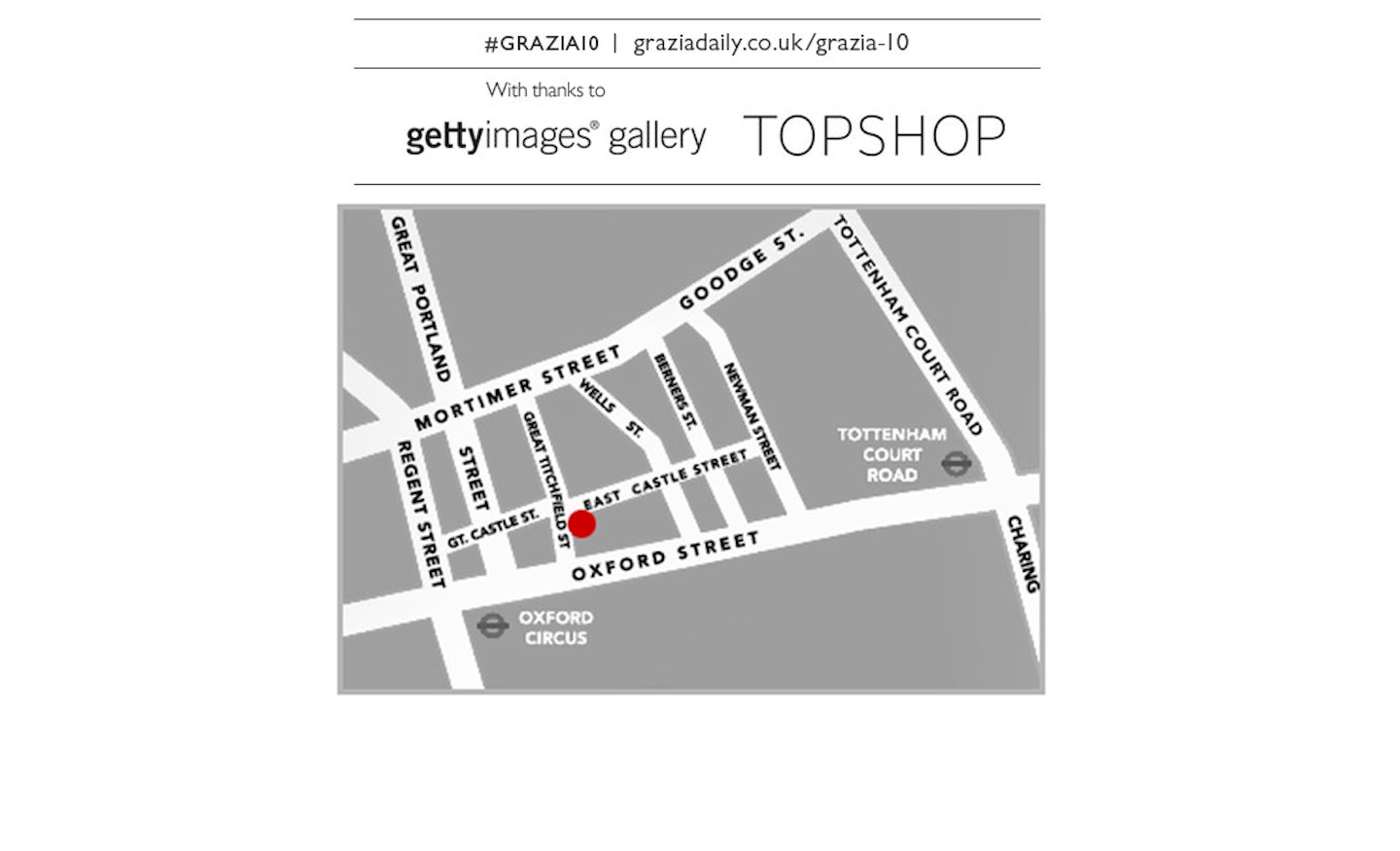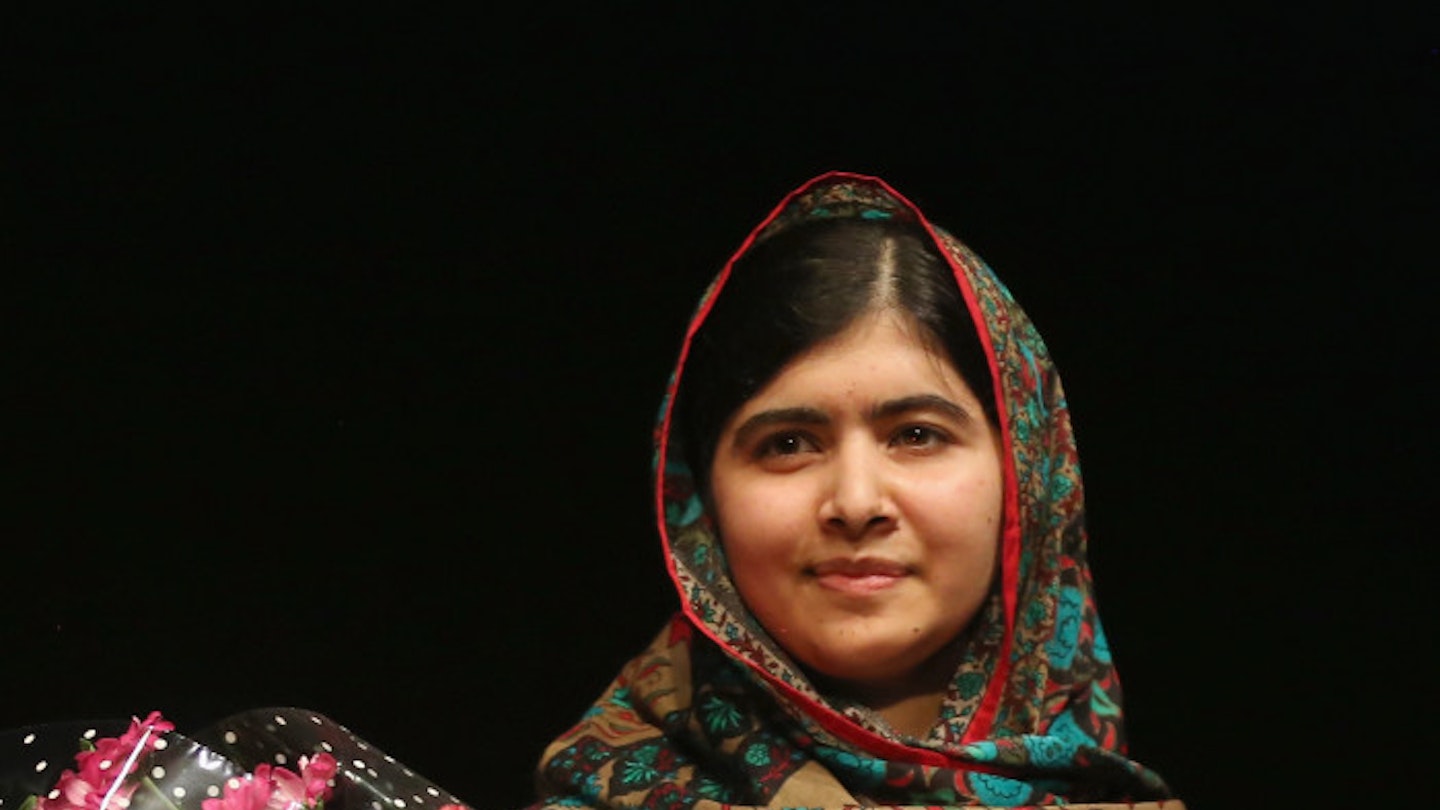It may be fashion month, but here at Grazia HQ we are also busy celebrating the fact that we are 10 years old. To honour the occasion we are hosting a celebratory exhibition at the Getty Images Gallery in central London (it's open to the public so do pop in), and with it, beginning a series of TenTalks (check out all the info on the forthcoming talks here) with the industry's biggest movers and shakers.
Last night we were joined by BBC's Newsnight Presenter Emily Maitlis, multi-award winning war correspondant and author Christina Lamb, Al Jazeera's Sue Turton and Sky News' Jayne Secker, as chaired by the brilliant Radio 4 Today Programme presenter Mishal Husain.
As regular readers will know, Grazia has always been as much about news as it is about shoes and we pride ourselves in our coverage of current affairs that really sets us apart from other weeklies and glossies.
So, as the world enters a new era of turmoil, what has it been like to have had a front seat at the major news events of the past decade and how has the explosion in social media changed the news reporter's role? Our #Grazia10 panelists - some of the biggest female names in current affairs - discussed their experiences and the lessons they've learnt.
Allow us to introduce our five best bits...
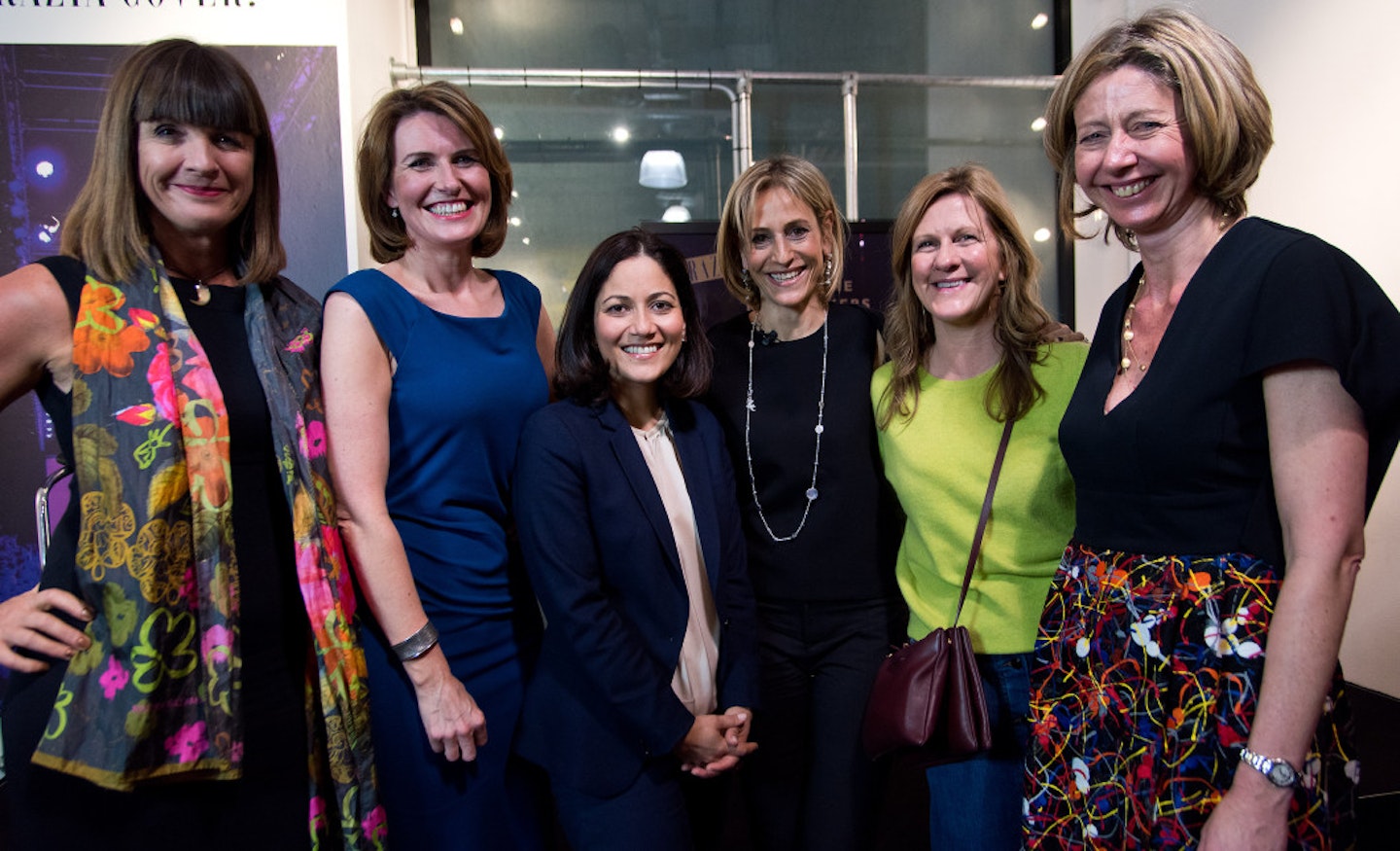
1. Hard work and passion gets you the job
"I wanted to write novels and have adventures and travel the world," said Christina - one of Britain's leading war correspondents . "I started as a journalist thinking it was a way to do all that, then I realised that real life stories are more interesting than anything you can make up." Indeed, many of our #Grazia10 panellists began careers in journalism through a string of coincidences or sheer hard work, all quickly growing to love the job. Indeed, Emily Maitlis, who is now one of the BBC's main news presenters was convinced, when she was younger, that she wanted to be a hairdresser. "I've wanted to be a journalist since I was really young," shared Sky News' Jayne Secker. "I worked my way up the conventional route and my career has seen me cover a number of conflicts such as the Iraq war. I even moved to America for six months to cover the Michael Jackson trial."
2. Social media has changed everything
Ten years ago mobile phones were pretty much chunks of plastic and social media as we know it today was probably beyond the wildest imagination. So what was a career in journalism like back then, and what impact have the new technologies had on a journalist's role? "I remember I was in a village covering a conflict - this was before mobile phones - and there was a big, red phonebox smack bang in the middle," shared Al Jazeera's Sue Turton. "There was a queue snailing out the phonebox with journalists banging on the door, frantic to file their copy," she said. This had it's good and bad elements. The good namely that you could disappear once your job was done whereas today, "they can pin you down wherever you are and get you live on air within seconds of [news] breaking."
But, as our #Grazia10 panelists explained, Twitter and other new technologies of the like are now, in fact, pivotal. "I wouldn't be able to do my job without Twitter, with the Charlie Hebdo story, for example, we got all our information from Twitter," said Jayne, with Christina adding that she checks Twitter first thing in the morning, every morning. That said, our panelists also explained how due to the nature of their jobs they're often held back from revealing too much about themselves or what they're doing via Twitter. "Because I work for a Sunday paper, I've been told not to tweet or reveal where I am during the week as by doing that it may alert our competition to a story we're working on, and they'll then be able to break it before we do on the Sunday," explained Christina. Newsnight presenter Emily Maitlis added: “At the BBC you do a course and they said, ‘Never tweet when you’re pissed or pissed off’. Don’t do it at the airport when your bags have been lost and don’t do it when you’ve just come home from the pub.”
Acknowledging the importance of citizen journalism, as facilitated through the mediums of social media, and the new energy and information that it's brought to the profession, our panellists also stressed the importance of fact checking, and of not simply believing everything you see. "There was a picture of Gaddafi's body that went around the world and then it turned out that it was a fake," said Emily, on the importance of verifying positively everything. "Retracting something like that is embarassing, and if a massive corporation like the BBC were to make a mistake like that, they'd really pay for it."
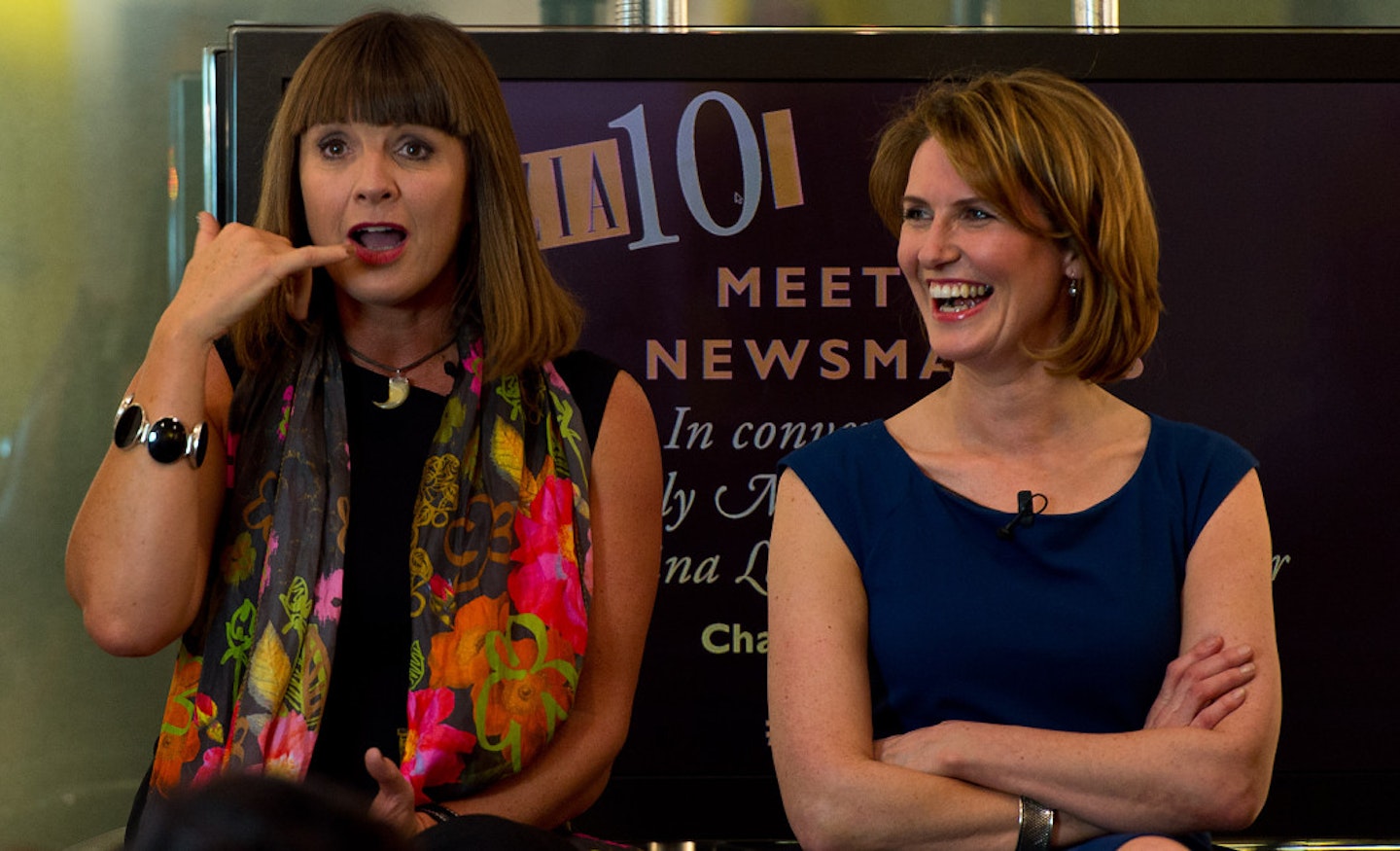
3. Life is more dangerous now
As pivotal as new technology is, though, you never really know who's watching. BBC's Emily Maitlis shared a chilling tale of her colleague who, during the Charlie Hebdo coverage carried out numerous interviews live on air: "there was one woman he spoke to whose daughter had phoned and was trapped inside the building. As he was reporting he suddenly had this chilling realisation that the terrorists could easily be watching, and that he was giving them information they may not otherwise have known." Sue shared similar experiences of her time with Al Jazeera, explaining how during coverage in the Middle East they would be moved after every broadcast, aware that Gaddafi was watching and would set out to kill them. "You become part of the front line," she explained. This is an aspect of the role that's relatively new. "Just as technology has changed, the job's become a lot more dangeous. Now we're targets more than the soldiers are," said Christina. "A solider being killed - it's sad but - it hardly warrants a paragraph these days whereas a journalist getting killed would make the headlines everywhere."
4. Women need to ask for more
"The patriarchy is alive and kicking," said Emily. Indeed, Christina went on to explain how in all her years as a war correspondent, she's never once had a female foreign editor. "At the end of the day who decides what goes in the paper is a man, and they tend to be a lot more interested in the 'bang bang' and tend to be a lot less interested in the human stories." This, suggests Jayne is due to the fact that once women get to a certain point in their careers they tend to plateau, which could be due in part to starting a family. "Most women can't afford childcare; they come back to work just so grateful to have a job that they don't ask for anything, but they have to," she said, going on to cite a personal experience where she found she was being paid two thousand pounds less than a male colleague who had started the same day as her. "I asked my boss why that was the case and he told me: 'because he asked for it love, you didn't'... Women need to be more ballsy, smash the glass ceiling, ask for more!" (Find out more about Grazia's Mind The Pay Gap campaign here.)
**5. It's not always the things that you think will get to you that do **
Jayne, who's suffered from Post Traumatic Stress after a stint covering a conflict in the Middle East revealed the moment she realised - for the first time - that she was not, in fact, superhuman. "My own mortality suddenly looked me in the face and I was terrified," she explained. "At the end of the day, we're all human, we're all affected by what we see." All agreed, however, that this realisation happens at different times and it's not always the the things that you think will affect you which are the ones that eventually do.
"When you see such horrible things all the time they start to become normal to you," said Christina. "It's weird the kind of things that affect you the most; I was in Zimbabwe and I saw thousands of peoples homes being destroyed by bulldozers and they couldn't do anything about it. That really affected me, more than all the war I've covered in the past. There was just something about the fact that they couldn't do anything and no one even protested about what was happening. Time and again I went back and it was always the same. Nothing ever changed," she explained, getting emotional. Beginning to question whether she was doing any good even being there someone told her: 'if people like you stop coming, what chance do people like me have of getting heard?' "It made me realise that going there to report on what was happening did matter," she concluded.
Please drop in to the free exhibition or book a place at a TenTalk. The exhibition runs from 23rd February - 14th March and is open to the public Monday Friday (10am-5.30pm), Saturday (12-5.30pm). Please note the gallery is closed when the #Grazia10talks are on.
Inside #Grazia10 Launch
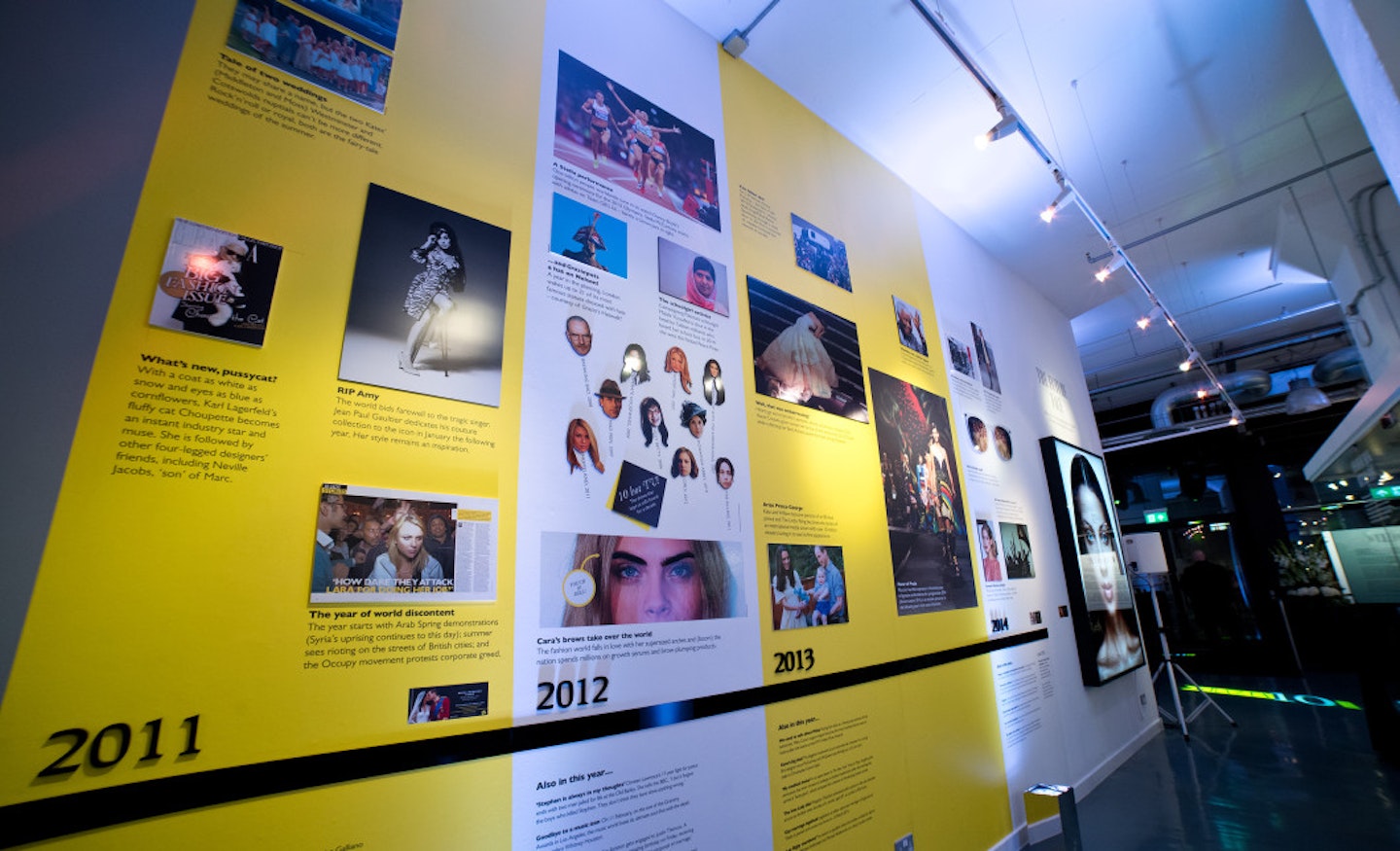 1 of 15
1 of 15Inside the preview of the #Grazia10 exhibition
Touch Cara Delevingne's eyebrows
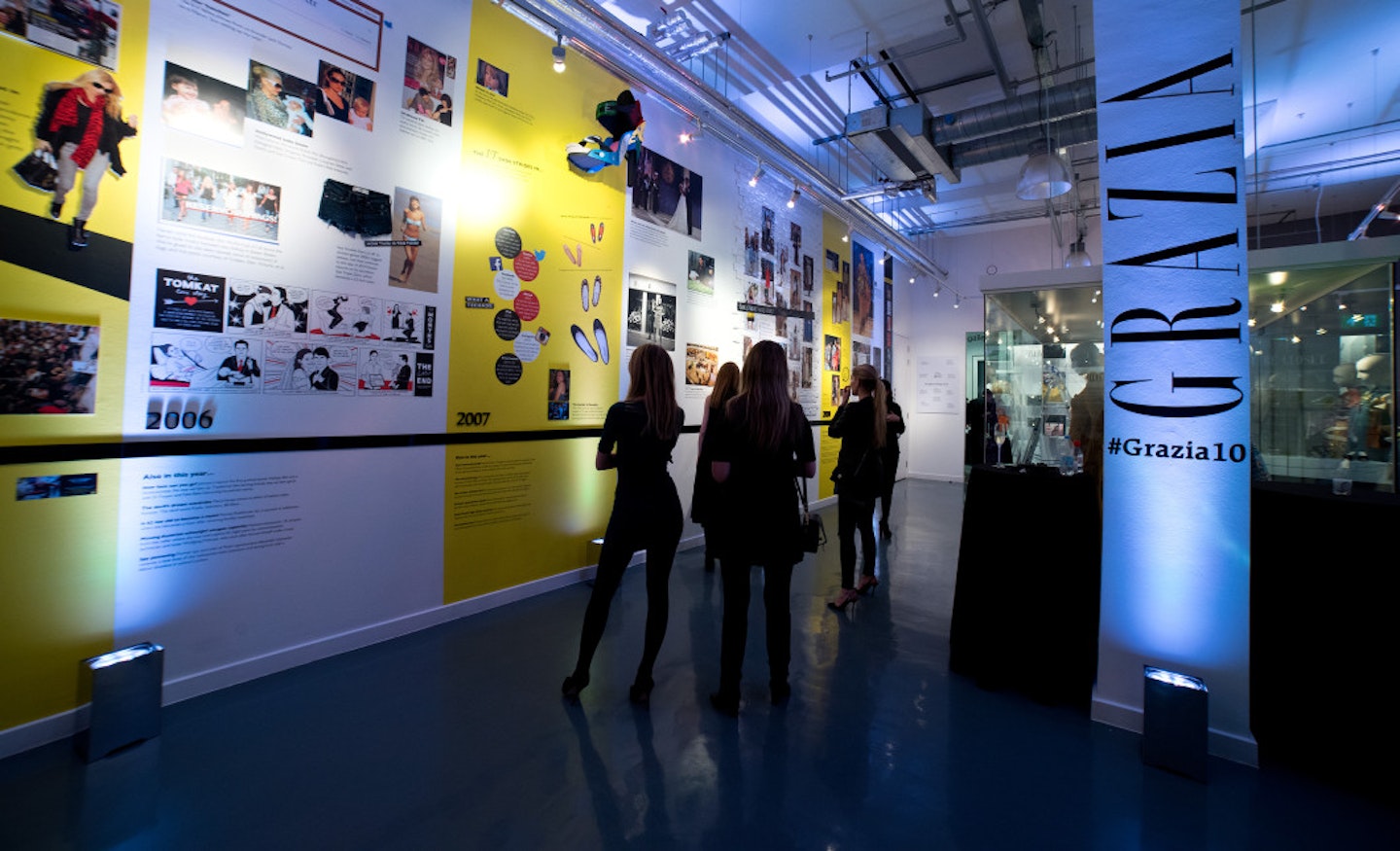 2 of 15
2 of 15Inside the preview of the #Grazia10 exhibition
.
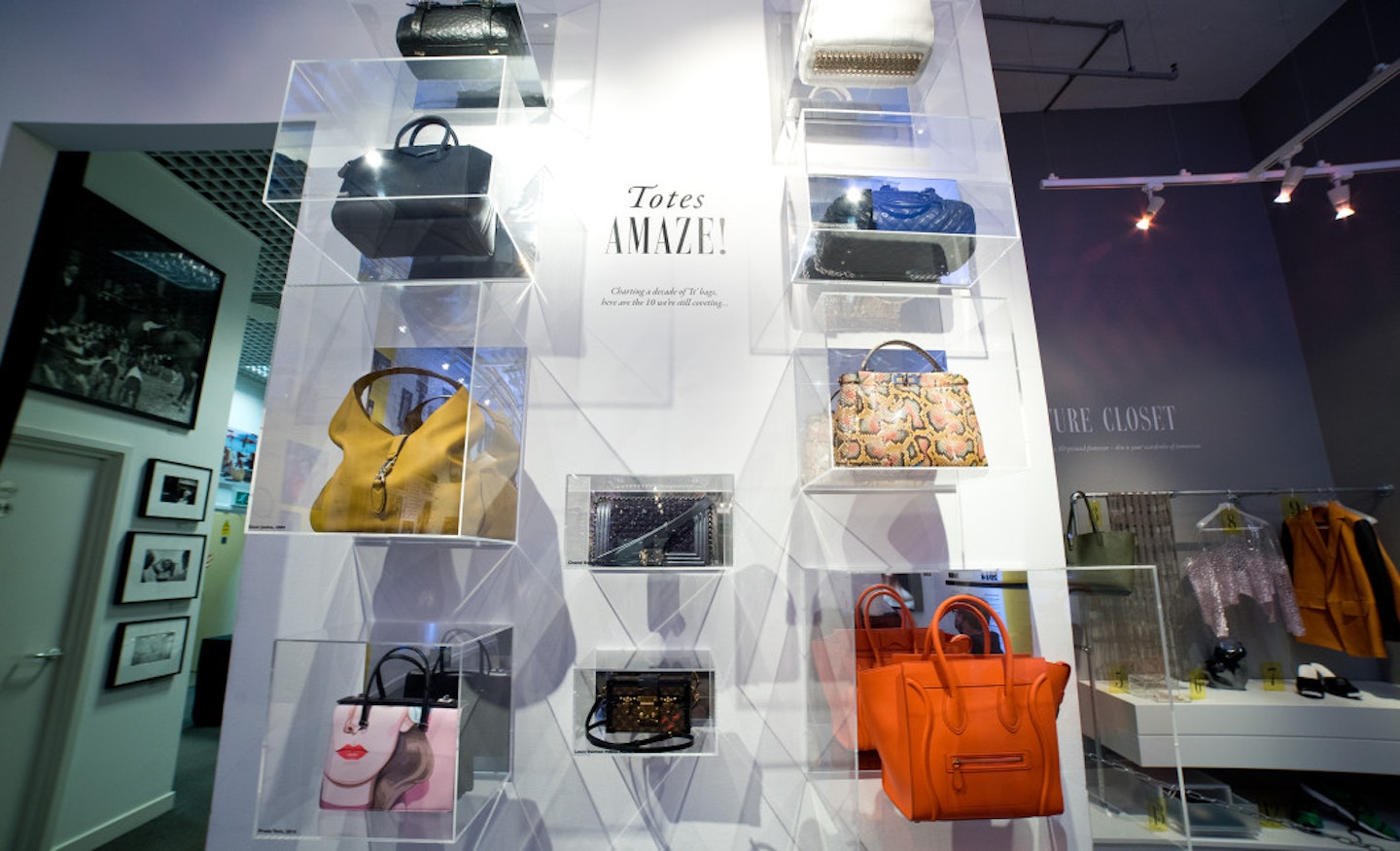 3 of 15
3 of 15Inside the preview of the #Grazia10 exhibition
Our wall of 'totes amaze' It Bags
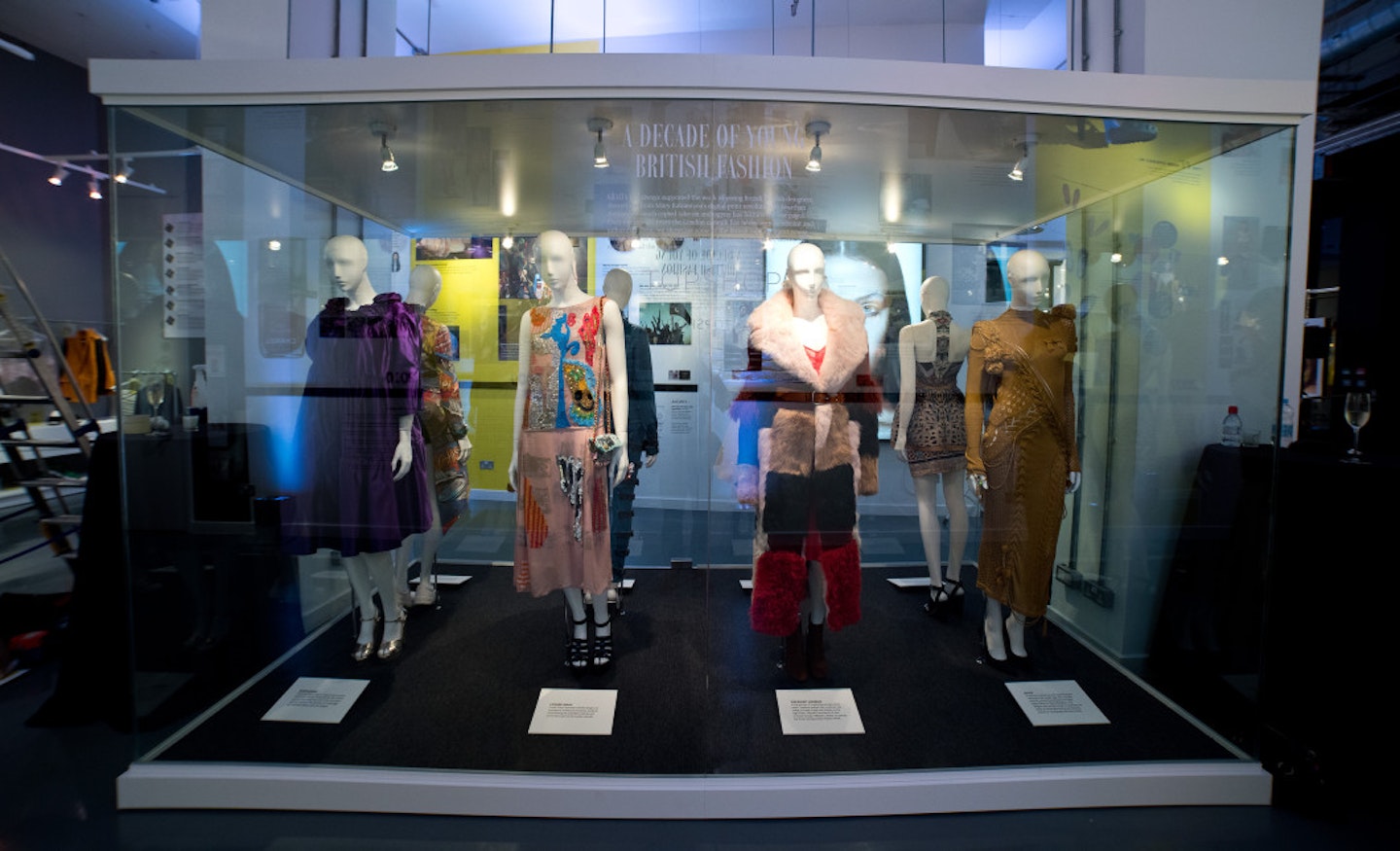 4 of 15
4 of 15Inside the preview of the #Grazia10 exhibition
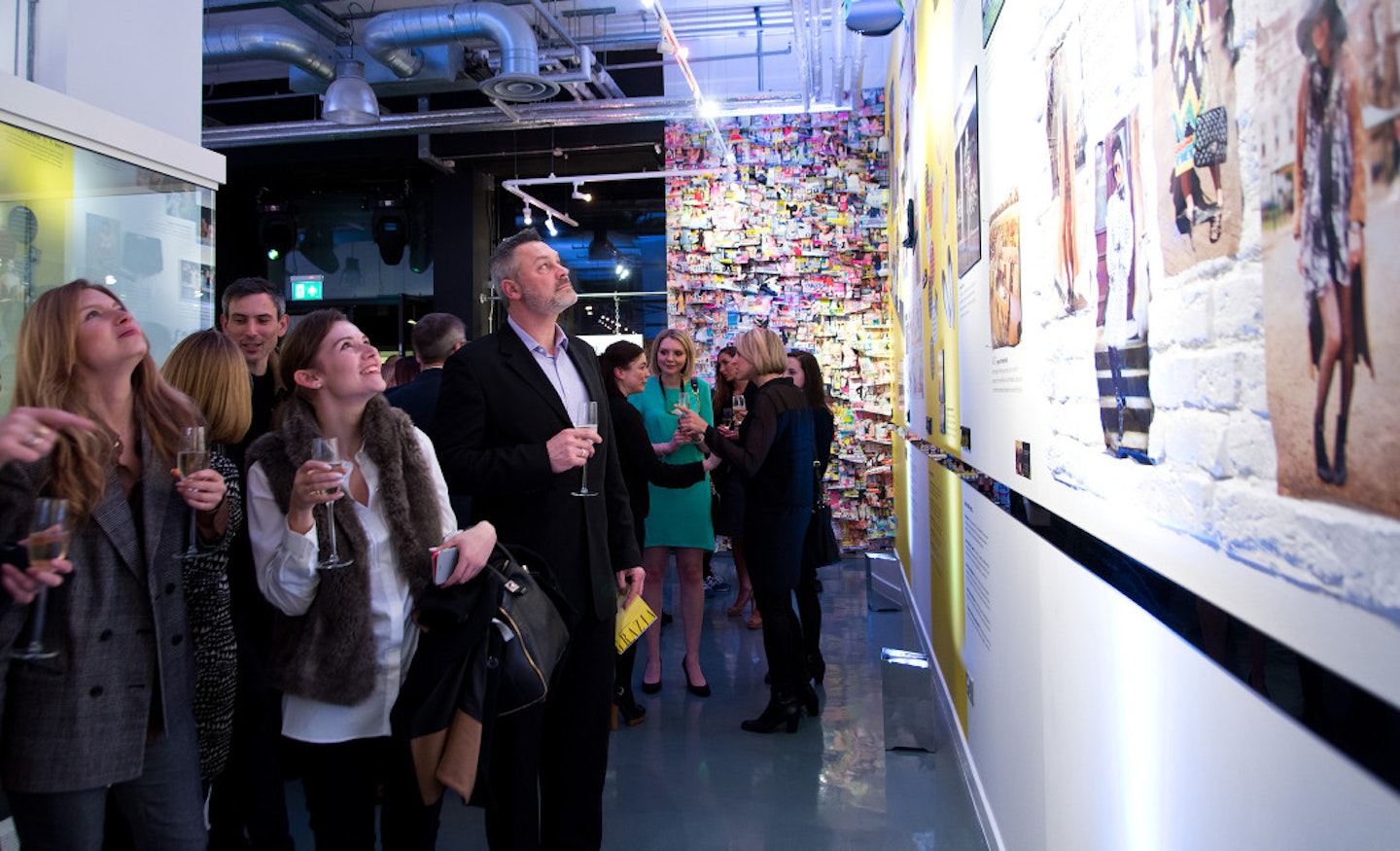 5 of 15
5 of 15Inside the preview of the #Grazia10 exhibition
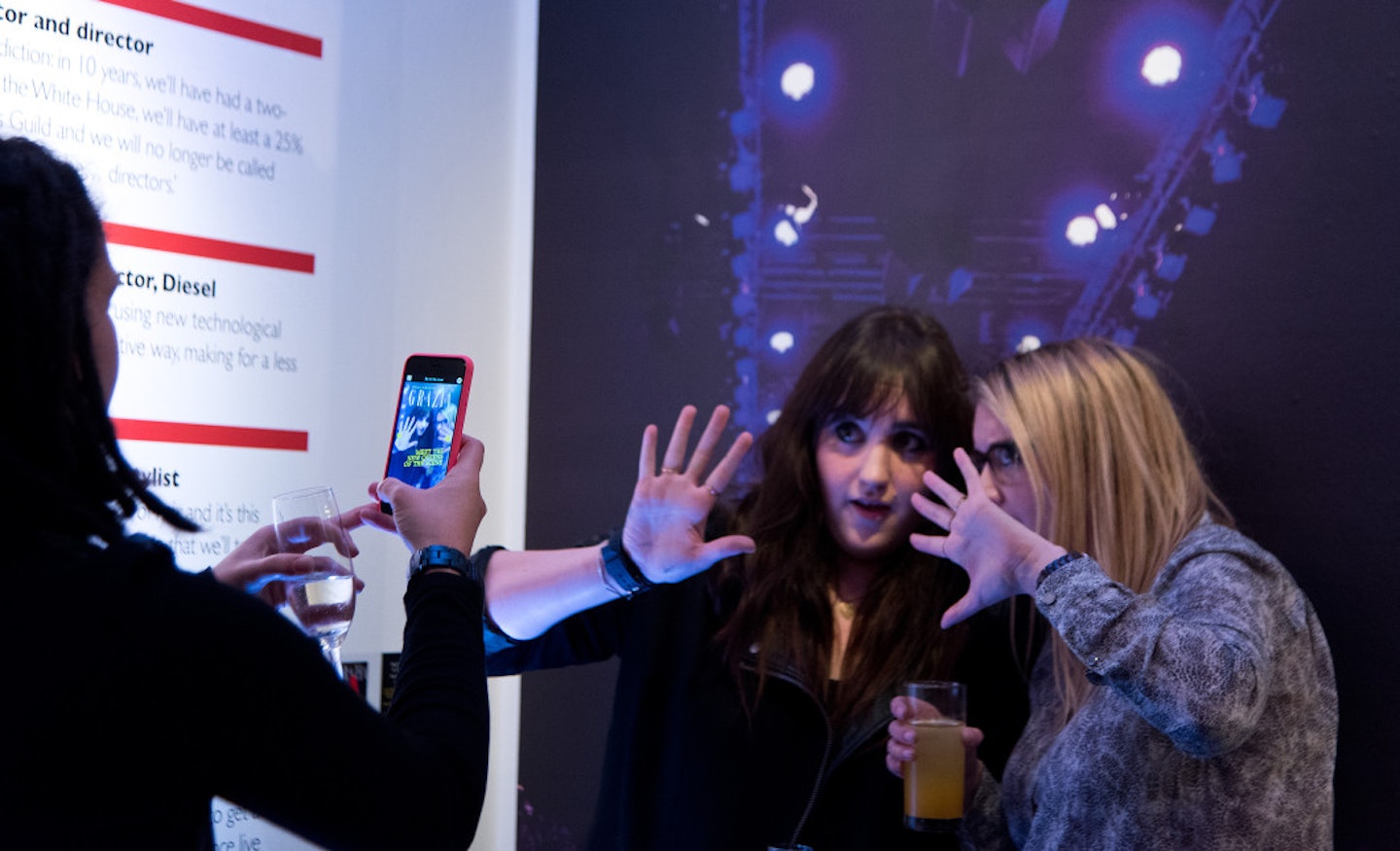 6 of 15
6 of 15Inside the preview of the #Grazia10 exhibition
YOU can be a #Grazia10 coverstar, too!
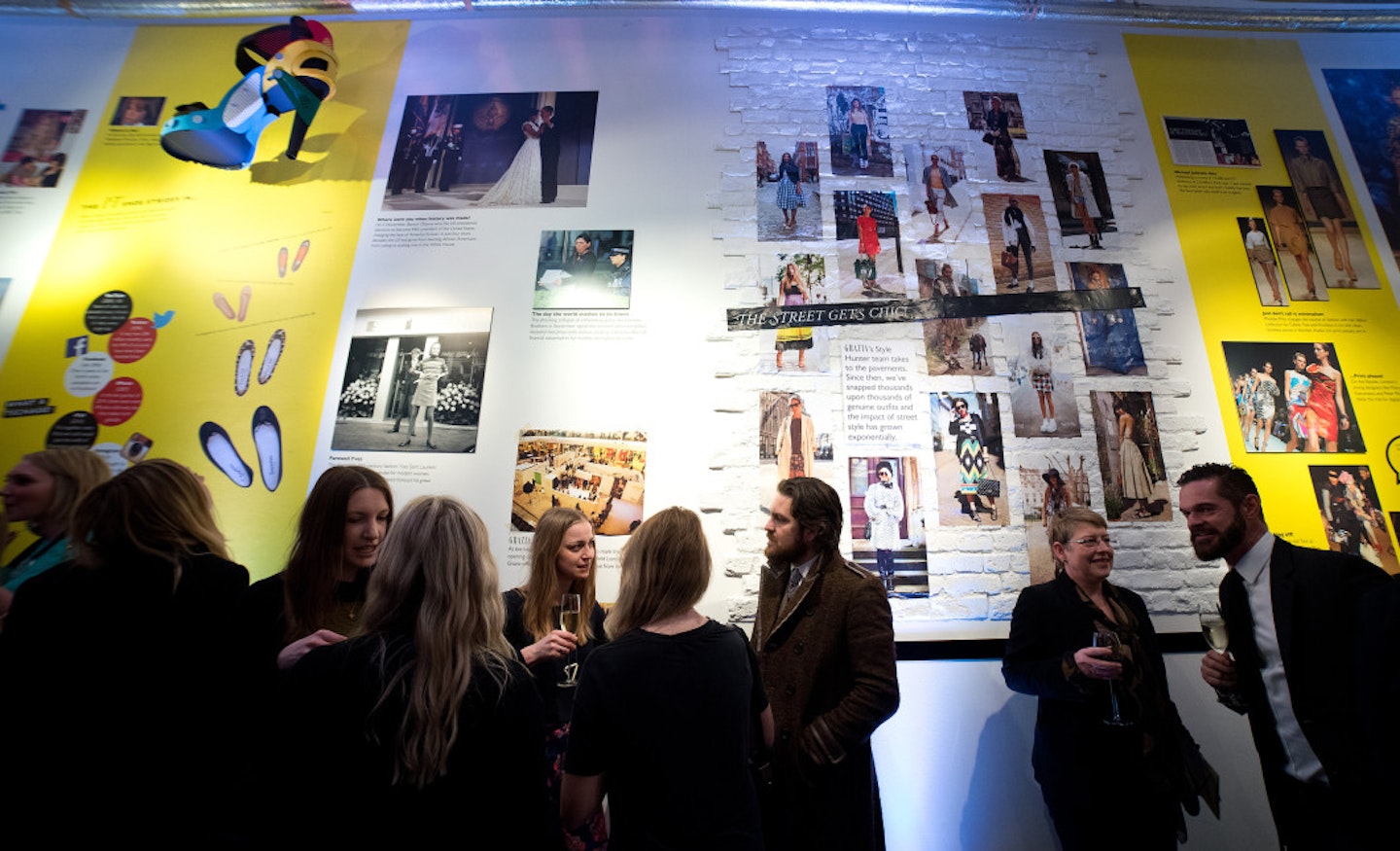 7 of 15
7 of 15Inside the preview of the #Grazia10 exhibition
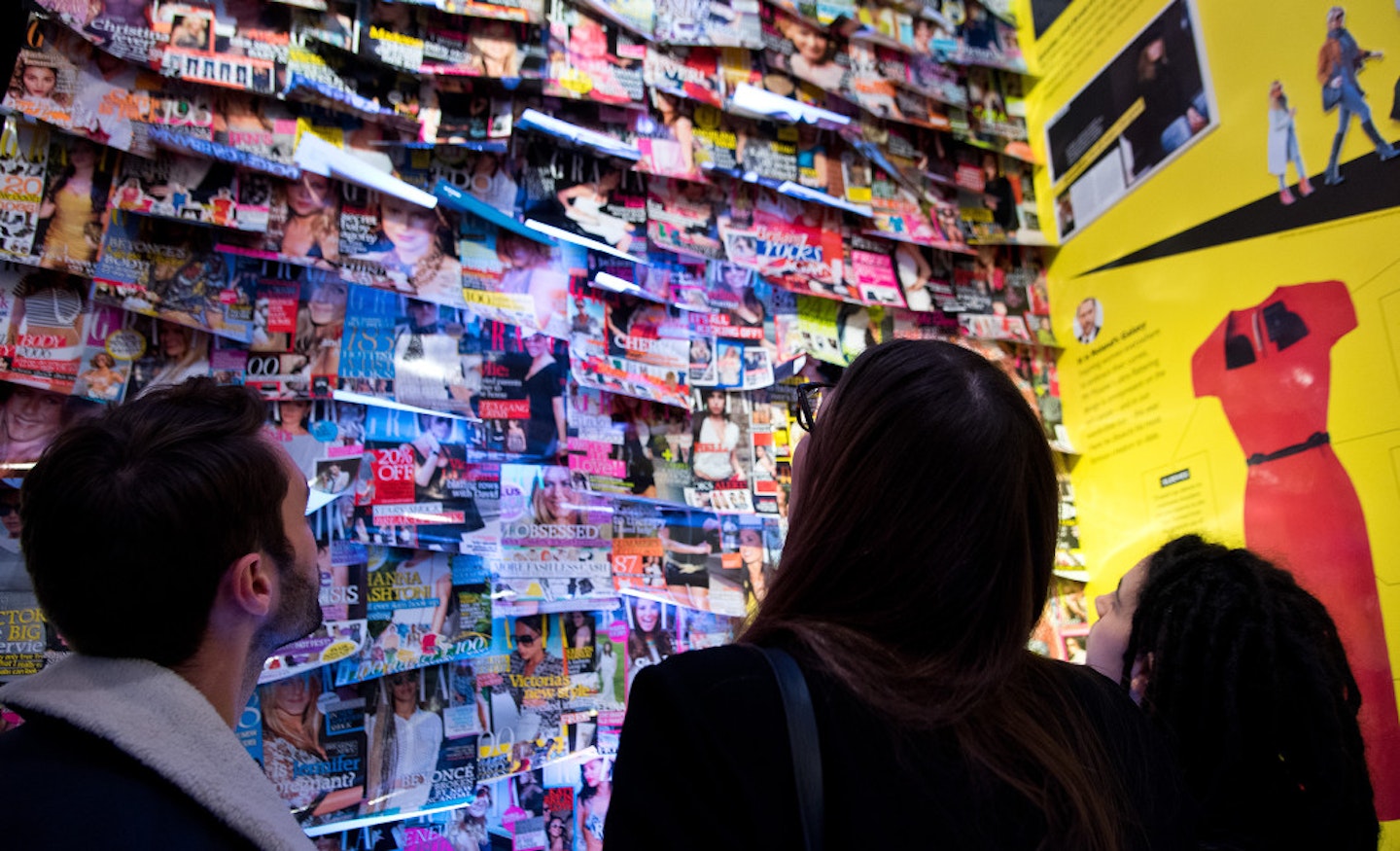 8 of 15
8 of 15Inside the preview of the #Grazia10 exhibition
A wall of Grazia covers
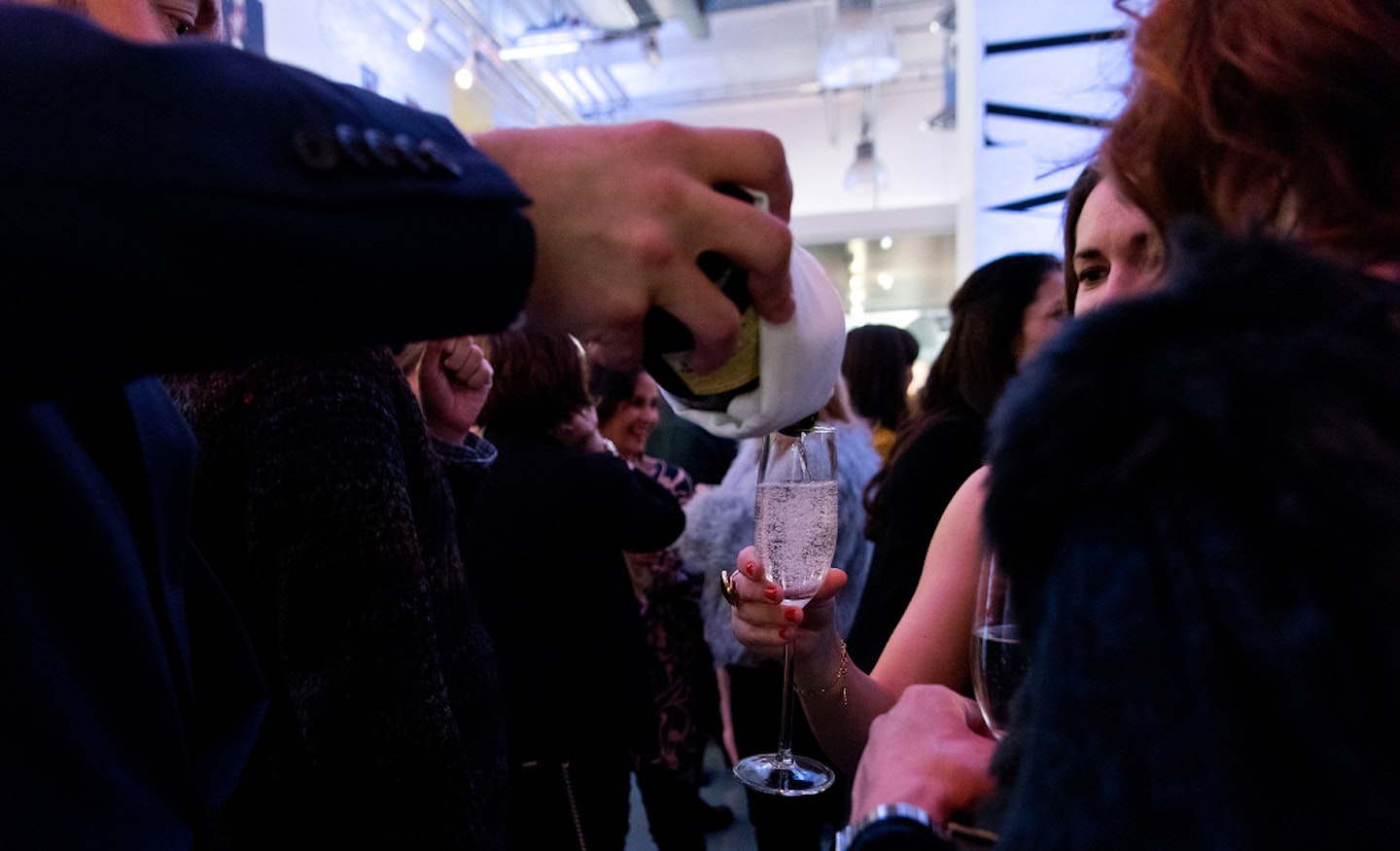 9 of 15
9 of 15Inside the preview of the #Grazia10 exhibition
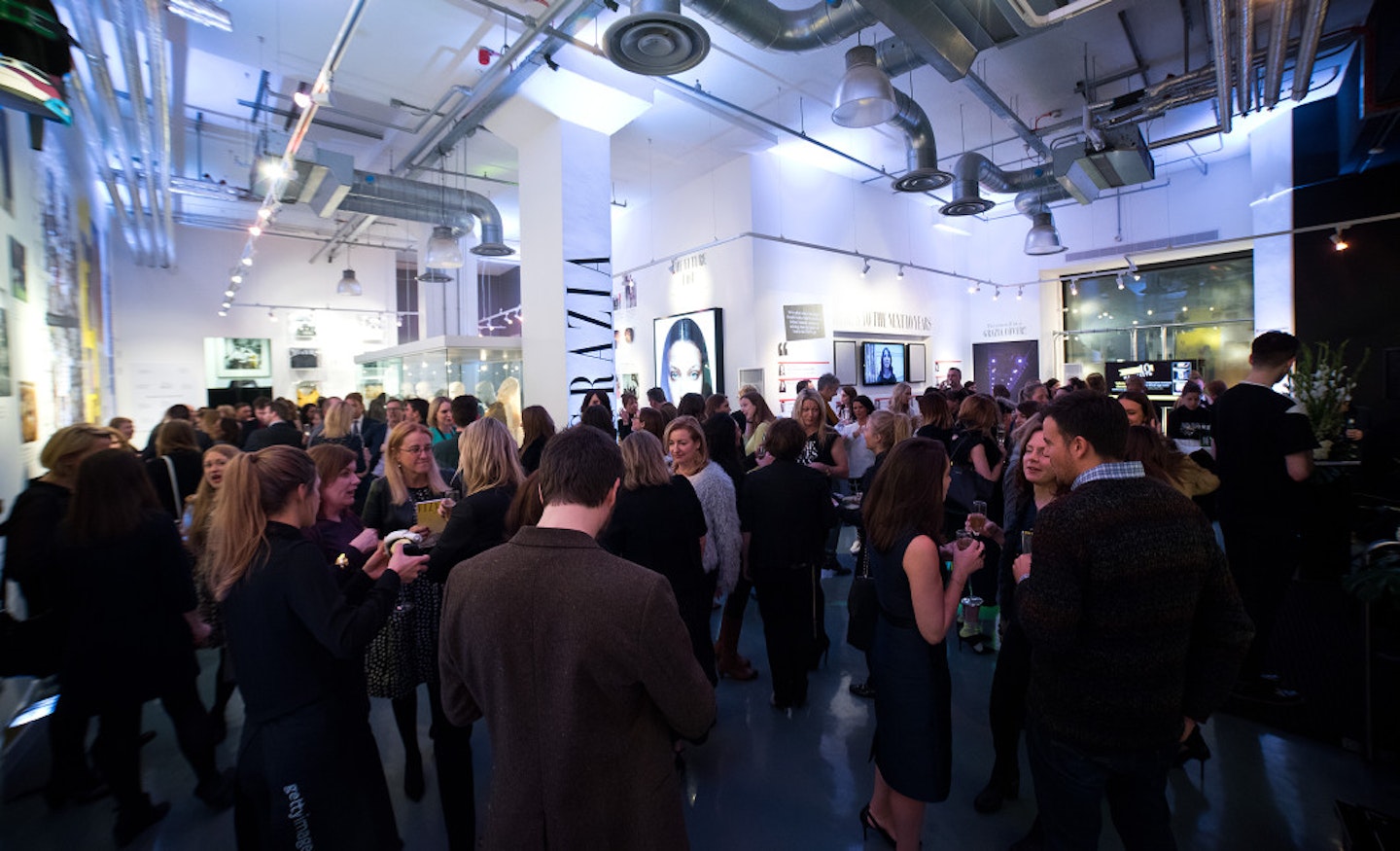 10 of 15
10 of 15Inside the preview of the #Grazia10 exhibition
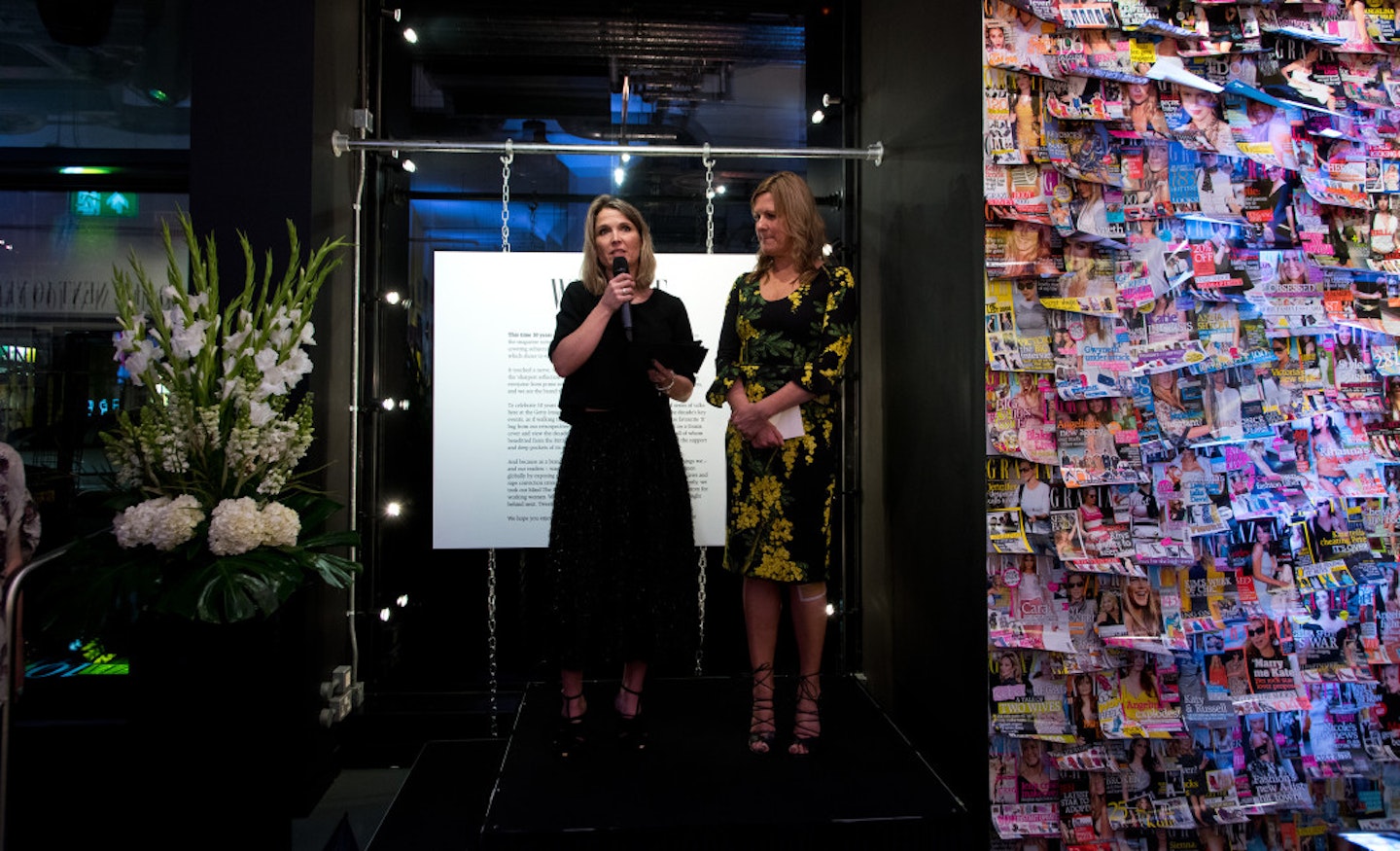 11 of 15
11 of 15Inside the preview of the #Grazia10 exhibition
Grazia's Jane Bruton and Bauer Media's Abby Carvosso
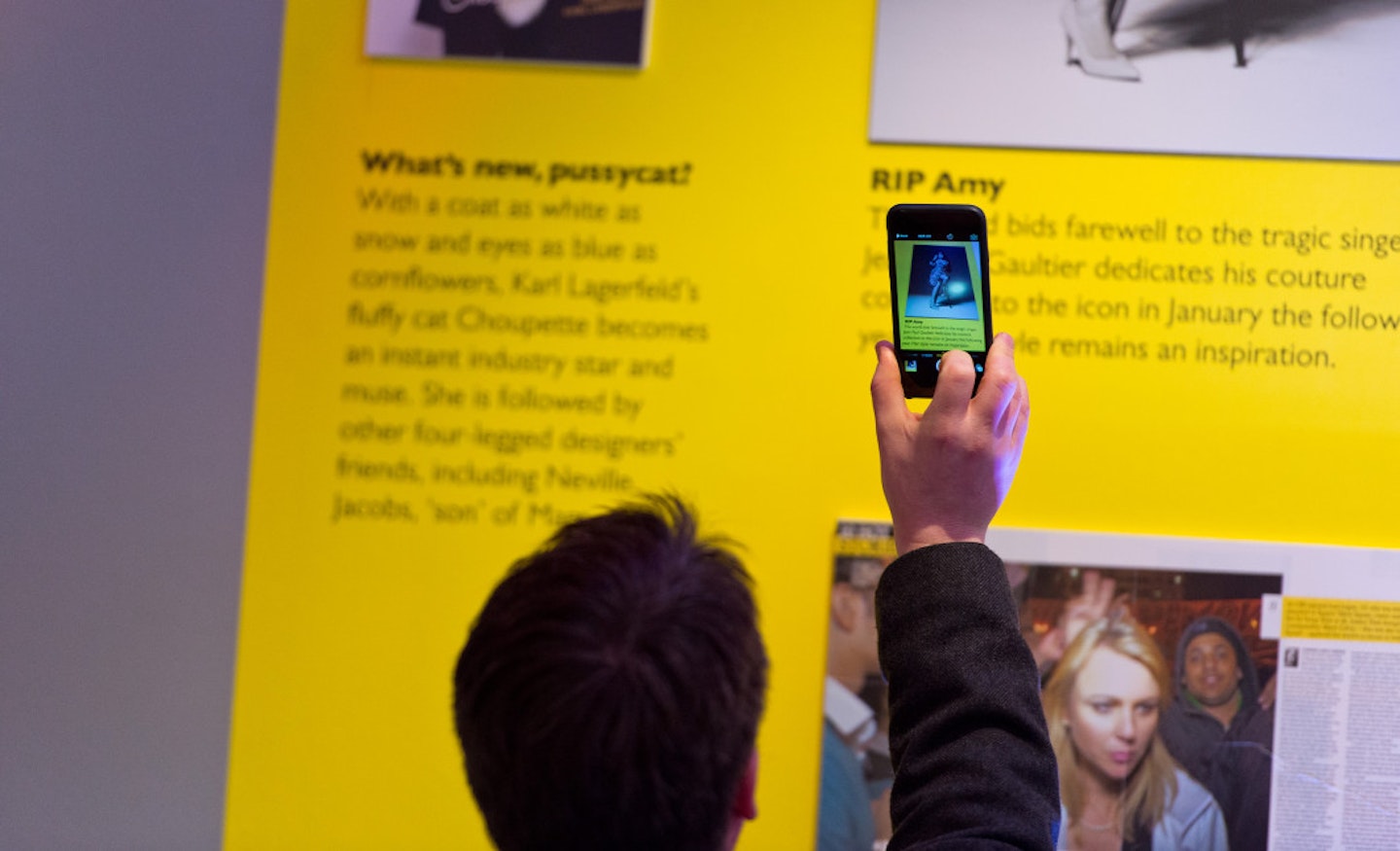 12 of 15
12 of 15Inside the preview of the #Grazia10 exhibition
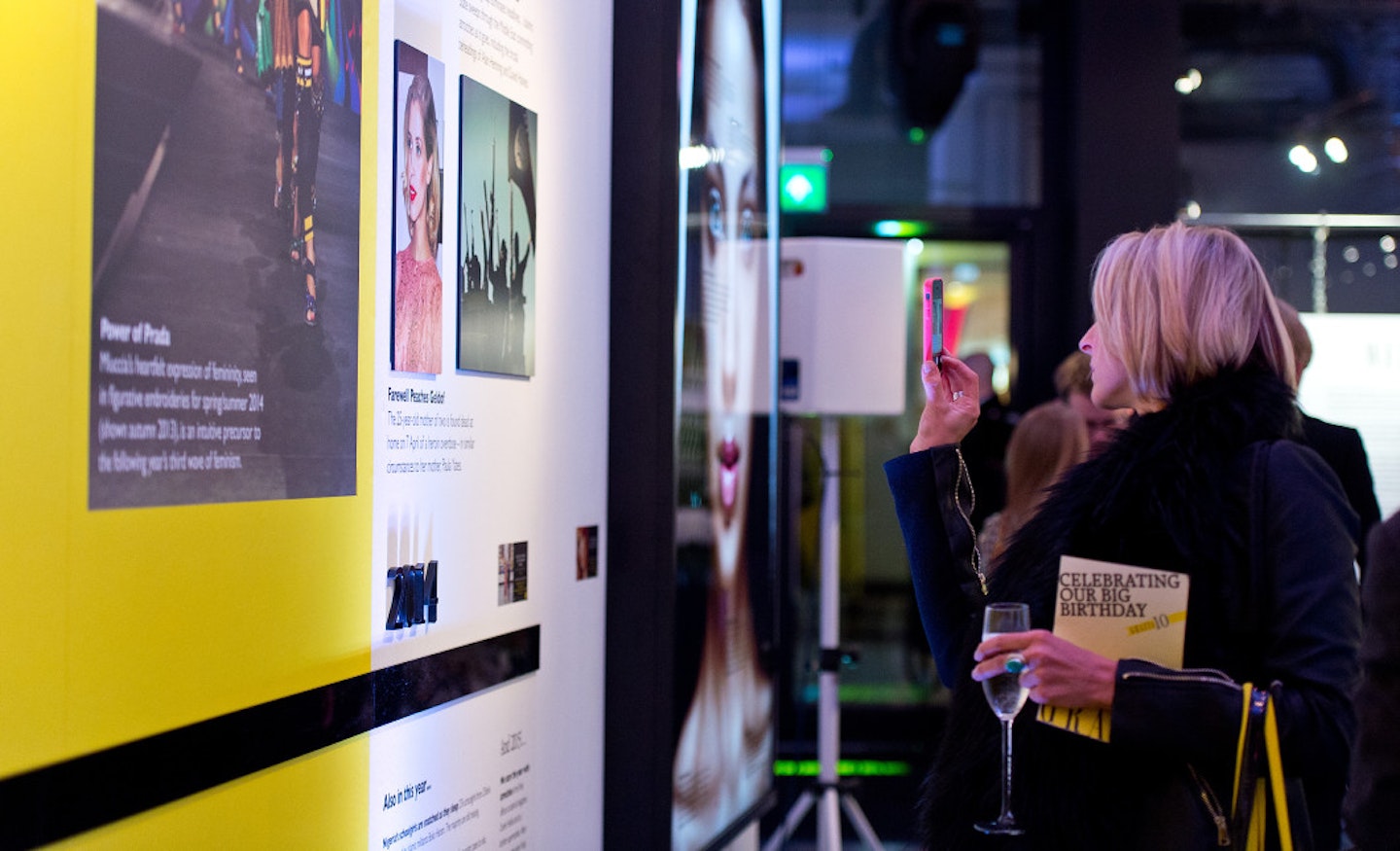 13 of 15
13 of 15Inside the preview of the #Grazia10 exhibition
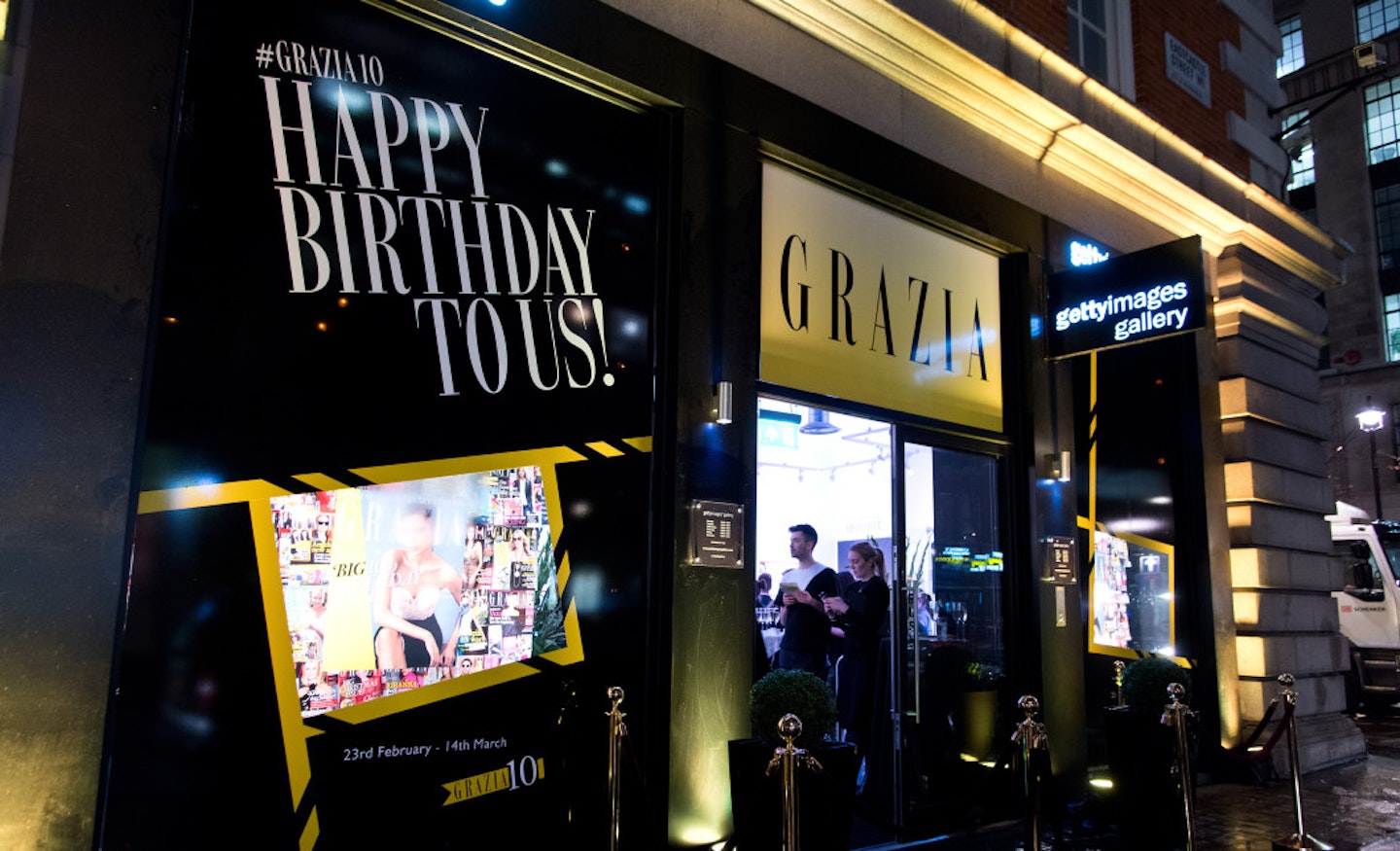 14 of 15
14 of 15GALLERY >> Inside the preview of the #Grazia10 exhibition
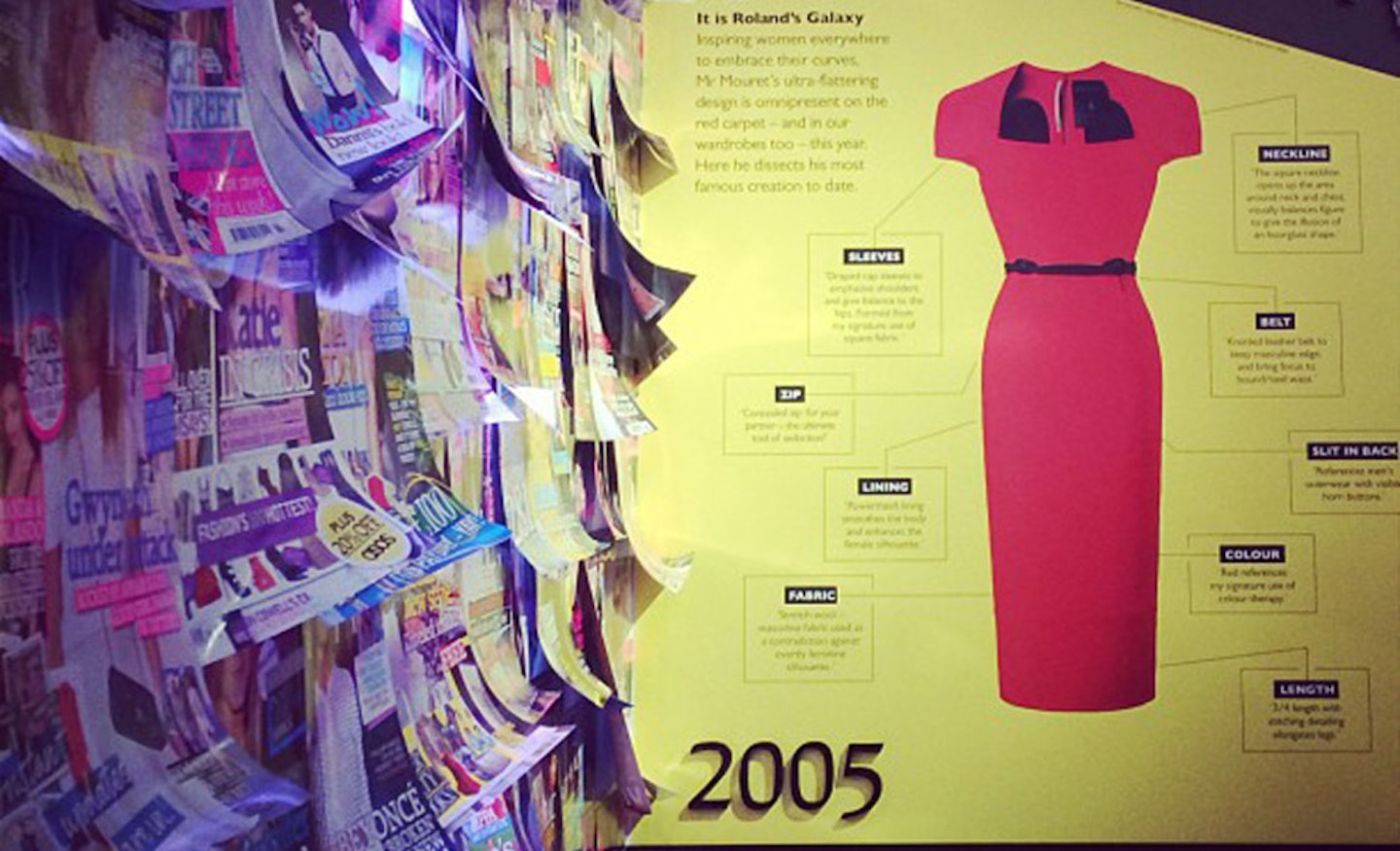 15 of 15
15 of 1511004995_637334806395379_574770006_n
See the list of Tentalks and ticket links below.
Please note that tickets are limited. More tickets may be available to purchase at a later date. Please check Grazia’s Twitter and Facebook updates for more info.
**Can't make these? Don't fret! **If you do miss out on tickets to any of the events, you can enjoy #Grazia10 highlights every day right here at Graziadaily.co.uk.
